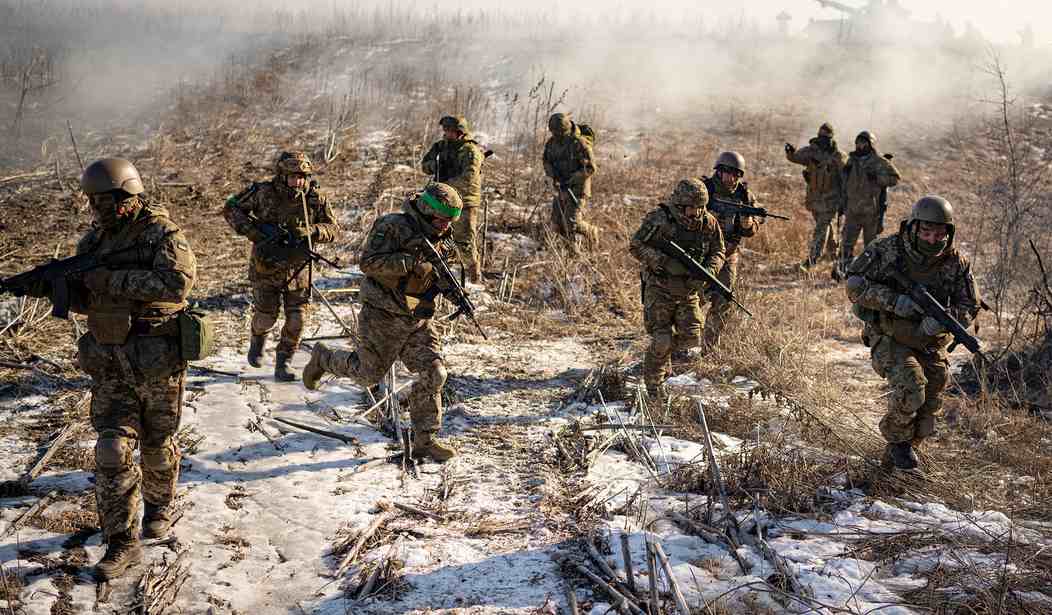The Pentagon is saying that it's out of money to send weapons to Ukraine to fight off the Russian invasion and is asking a group of 50 nations who support Kyiv to bridge the gap.
“I urge this group to dig deep to provide Ukraine with more lifesaving ground-based air defense systems and interceptors,” Secretary of Defense Lloyd Austin said. He is still recovering after prostate cancer surgery, so he joined the meeting virtually from home.
On Tuesday, NATO Secretary General Jens Stoltenberg announced a new $1.2 billion contract to buy more than 222,000 rounds of 155 mm ammunition. This is the most popular artillery round of the war, and Ukraine is not only exhausting its own stockpiles but is seriously depleting the stockpiles of its NATO allies.
“Even though we aren’t able to provide our security assistance right now, our partners are continuing to do that,” deputy Pentagon press secretary Sabrina Singh told reporters Monday.
U.S. partners are unable to supply more than a fraction of what Ukraine needs to keep the war going.
The Pentagon announced its last security assistance for Ukraine on Dec. 27, a $250 million package that included 155 mm rounds, Stinger anti-aircraft missiles and other high-demand items drawn from existing U.S. stockpiles.
The U.S. has not been able to provide additional munitions since then because the money for replenishing those stockpiles has run out and Congress has yet to approve more funds.
More than $110 billion in aid for both Ukraine and Israel is stalled over disagreements between Congress and the White House over other policy priorities, including additional security for the U.S.-Mexico border.
We've sent Ukraine more than $42 billion in arms with about $22 billion of that drawn from our own stockpiles. Needless to say, the cupboard is getting bare.
"Our support for Ukraine's struggle against tyranny makes all of our countries more secure," Austin said. "If we lose our nerve, if we flinch, if we fail to deter other would-be aggressors, we will only invite even more bloodshed and more chaos. So a sovereign and secure Ukraine is critical to global security and we must not waver in our support for Ukraine."
The ability of the Defense Department to continue funding Ukraine’s war with Russia as well as Israel’s war with Hamas in Gaza hinges on policy priorities between the White House and the U.S. Congress, including funding disagreements between the Democratic-controlled U.S. Senate and the Republican majority in the U.S. House of Representatives.
More than $110 billion in aid for both Ukraine and Israel is currently stalled over these disagreements.
Despite opposition from some Republicans, it appears that funding to address the crisis at the border, as well as money for Ukraine and Israel, will come to the floor of the House as early as next week. It faces an uncertain fate.
The question for Republicans opposing Ukrainian assistance is whether they truly want to see Vladimir Putin get a relatively easy victory.










Join the conversation as a VIP Member